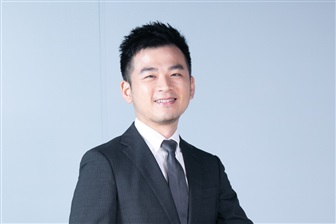Tesla has seen its North American Charging Standard (NACS) gaining traction after winning Ford over two months ago. However, DIGITIMES analyst Evan Chen said Combined Charging System (CCS) Type 1, the second most-used charging connector in the US, is unlikely to be phased out soon as it has government support.
The Biden administration aims to build 500,000 EV chargers across the US by 2030. Chen said the country is one of the few major automotive markets that has not standardized its charging connectors. Europe uses CCS2, while China has its GB/T. Most non-Tesla EVs in the US have adopted CCS1.
Since the end of May, automakers like Ford, General Motors and Volvo have said they will adopt NACS. Nissan was the first Japan-based carmaker to follow suit. Charger makers such as SK Signet, EVgo and Electrify America also said they will include NACS at their charging stations.
Kentucky became the first state to mandate charging companies to add Tesla connectors at their stations. Texas and Washington states also have similar plans.
On July 26, BMW, GM, Honda, Hyundai, Kia, Mercedes-Benz and Stellantis announced they will establish a charging network joint venture (JV) in North America. The JV plans to install at least 30,000 chargers in the US and Canada, offering both NACS and CCS1 connectors.

Source: Alternative Fuels Data Center, compiled by DIGITIMES Research, July 2023
Chen said Tesla Supercharger accounts for over 60% of the DC fast charging (DCFC) ports in the US. It is also one of the two charging networks extending from the west to the east coast.
Automakers who adopt NACS can better mitigate a driver's range anxiety and potentially lure more customers, Chen said. In addition, developing their own charging connectors would require lots of investment. That is why car companies are turning to the Tesla standard.
Chen said more NACS adoption means more people will use Tesla Supercharger. It will also help Tesla's energy storage business.
Carmakers said they will start offering NACS adaptors to their customers in 2024 and integrate the connector into their vehicles in 2025. Chen said some people might delay their non-Tesla EV purchase to 2025 or consider buying a Tesla model instead.
The same charging experience Tesla drivers have had
Although NACS is gaining traction, Chen said CCS1 will stay for a while in the US because some EVs still rely on the connector. Moreover, charging stations must provide at least one CCS1 connector at each DCFC port to be eligible for the federal subsidy program under the Bipartisan Infrastructure Law.
Chen said since the US government has not made any changes to the requirements, CCS1 will maintain its presence.
He also expected minor challenges to come with the NACS adoption. Supercharger's short cords might force some non-Tesla drivers to park parallel to the charging port and occupy at least two parking spots to charge.
Chen said the most important issue that automakers and charging companies will have to deal with is offering non-Tesla drivers the same smooth charging service that Tesla drivers have been enjoying from the EV giant. For example, non-Tesla drivers would want the latest and accurate information about charging station availability on their apps when accessing Supercharger starting in 2024.
About the analyst
Evan Chen holds a master's degree in library and information science from National Taiwan University. His research focuses on autonomous driving technology, ride-hailing service/mobility as a service (MaaS), EVs and batteries.



